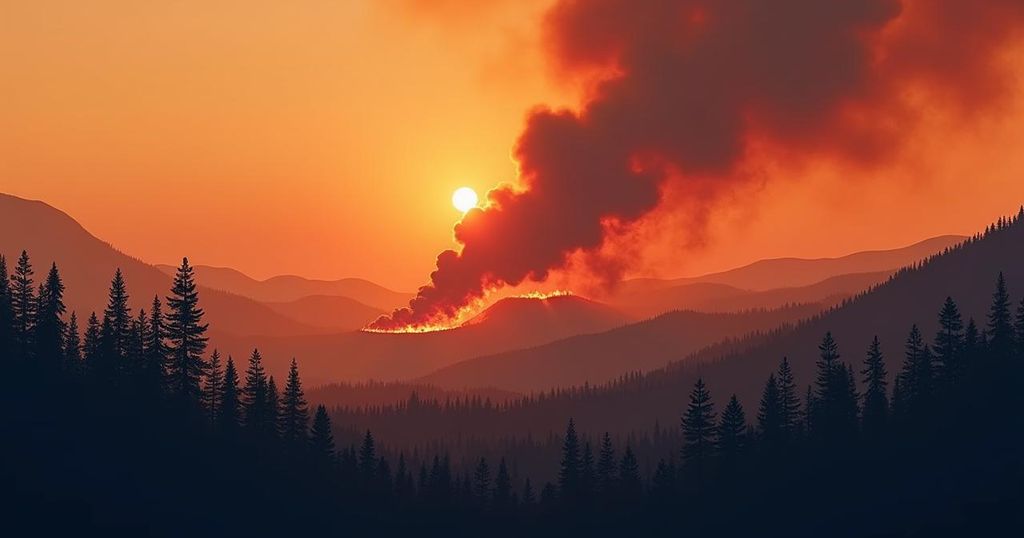South America, particularly the Amazon region, is experiencing severe wildfires primarily linked to human activities such as agriculture, resulting in widespread smoke exposure and health crises. The fires, fueled by climate change and drought conditions, have devastated forests, threatened Indigenous communities, and overwhelmed medical facilities, provoking a urgent call for collective international action to address the ecological and health-related implications of these disasters.
The Amazon region of South America is facing an environmental crisis exacerbated by extensive wildfires that have enveloped large areas in smoke, severely affecting air quality and human health. The fires, primarily driven by agricultural practices such as cattle ranching and soy cultivation, have spilled over into neighboring countries, with a significant increase in wildfire occurrences linked to climate change and the natural climate phenomenon, El Niño. In communities such as Porto Velho in Brazil, healthcare facilities are overwhelmed by respiratory ailments among residents, while authorities struggle to contend with flames that have decimated over 180,000 hectares of forest in Paraguay and over 4.6 million hectares in Bolivia. The plight of Indigenous communities, particularly the Ayoreo people, highlights the harrowing impact of these fires, threatening both their way of life and the ecological integrity of their ancestral lands. There is a growing urgent call for international attention and concerted efforts to address this escalating crisis, emphasizing the interconnectedness of these environmental challenges across South America. The situation has drawn grave concern, with health officials and environmental experts alike calling for immediate and collective action. Marilene Penati, health secretary of Porto Velho, expressed profound sadness over the crisis, stating, “The Earth is sick … the Earth is crying out for help,” and cautioned against humanity’s neglect of these pressing issues. This sentiment resonates across the continent as nations grapple with the consequences of wildfires in their forests and the associated health effects on their populations, which demand a unified response to protect both people and the planet.
The current environmental emergency in South America, particularly affecting the Amazon rainforest, has roots in aggressive agricultural development that utilizes seasonal fires for land clearing. This practice, although historically significant, has escalated due to rising temperatures and changing climate patterns, notably influenced by global warming. Regions like Rondônia in Brazil have witnessed severe air quality deterioration due to smoke from these fires, further exacerbated by a record drought that has left many areas dry and vulnerable to ignition. The widespread impacts of these fires extend beyond Brazil, affecting multiple countries and their respective ecosystems, food security, and public health.
The extensive wildfires across South America present a profound threat to both human health and ecological systems. With significant areas of forest and savannah lost, urgent action is paramount. The crises underscore the dire need for unified international efforts to combat climate change and safeguard vulnerable ecosystems while attending to the immediate health concerns of those affected by the smoke and flames. As reiterated by health and environmental leaders, the call to action resonates: urgent listening and intervention are critical in addressing the environmental distress faced by the continent and, by extension, the planet.
Original Source: www.theguardian.com






